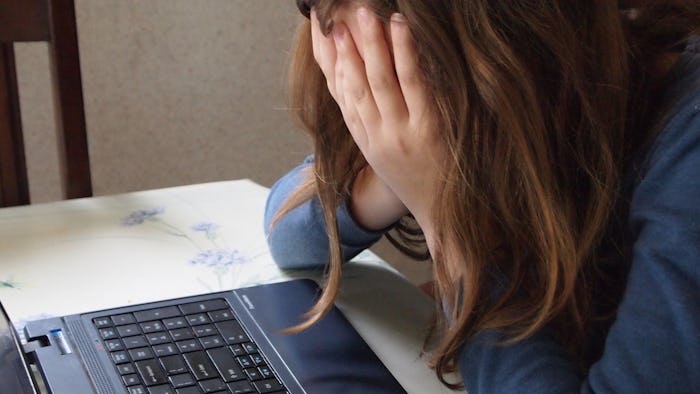No parent wants to think about their child ever being in any kind of pain, be it physical, mental, or emotional. Yet, as uncomfortable a topic as it may be, you still have to consider the possibility that your son or daughter may encounter one of those situations. As with most things in life, preparation is the first step to being able to protect your child from harm. The best way you can do that is to be aware and know how to look for signs your child is being bullied.
Let's be honest, a huge issue with bullying is that the aggressor typically intimidates the victim into silence. So your kid might not even want or be able to verbally express the issue. Regardless of how open and judgement-free your parenting style may be, children who are being bullied often feel like silence is their safest best to avoid further trouble. That's why being able to recognize red flags is so crucial.
As a parent, there's so much you do for your child. Soothing them in the middle of the night, caring for them when they're sick, trying to provide them a well-balanced diet, and loving them unconditionally are all ways you do your best to give them a happy, healthy life. So put your mind at ease and check out these signs your child is being bullied to ensure you're doing all you can for them.
1Their Transportation Routine Has Changed
It's normal for kids to get bored with routine, but it might be something worth discussing with them if they seem fearful or upset by taking their usual route. The Olweus Bullying Prevention Program, which is recognized by the Center for the Study and Prevention of Violence, recently noted that, if your child is suddenly taking illogical routes, avoiding familiar paths, skipping the bus, or even resisting school attendance altogether, they could all be signs they're experiencing bullying.
2They Begin To Loathe Technology
Bullying doesn't just take place in the physical world. Children today have unprecedented access and pressure to participate in social networking on a wide-reaching scale. The Anti-Defamation League reported that, "cyber-bullying may be happening to your child if they become upset, sad or angry during or after using the Internet or cell phone."
3They're Always Sick
Is a stomach ache real, an excuse to stay home and watch TV, or a sign of bullying? Dr. Joel Haber, bullying expert and author of Bullyproof Your Child for Life, told Care.com that if your child is frequently or excessively coming down with symptoms you can't see (like headaches, nausea, etc.) or is constantly going to the nurse's office at school, this may be a coping mechanism they've developed to avoid encounters with their bully.
4Their Sleep Pattern Is Off
Whether they seem to suddenly be exhausted all the time or you hear them tossing in turning at all hours of the night, needing more sleep or having difficulty sleeping could be a sign of bullying. According to an article on Psychology Today, a sudden or negative difference in your child's usual sleep pattern could be the result of emotional distress from bullying.
5Their Belongings Go Missing Or Are Damaged
Plenty of kids forget their hoodie at school, accidentally break a toy, or mess up their clothes during outdoor activities. But according to the American Psychological Association, ripped clothing, items disappearing, or damaged belongings could actually be signs of bullying that your child is too nervous to talk about.
6They've Developed Bathroom Issues
If your child is on the younger side, the occasional "accident" can seem normal. Yet a sudden change in your child's bathroom habits could be something more. Dr. Michele Borba, an expert and author in the field of educational psychology and counseling, told Character that bullying could be present if your child is "bed-wetting [or] waits to get home to use the bathroom," noting that since public bathrooms, they can be hot spots for bullying."
7Their Academic Behavior Diminishes
Every kid can have a bad day from time to time in class, but if your A student is mysteriously becoming a D or F student, bullying may be at the source of their uncharacteristic academic decline. The Olweus Bullying Prevention Program stated, that children who "lose interest in doing school work, suddenly begin to do poorly in school, or appear anxious in school" are typically victims of bullying.
